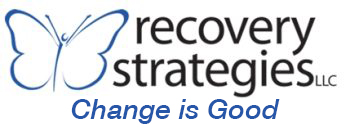How does Out-Patient Medication Assisted Treatment (MAT) benefit the patient?
Medication Assisted Treatment decreases opioid use, opioid-related deaths, criminal activity, and infectious disease transmission according to the National Institute on Drug Abuse. Medication Assisted Treatment (MAT) increases social functioning and retention in treatment.
What should I expect on my first visit?
Psychiatrist/Physician evaluation and treatment plan; Medical and Social History; Patient contract addressing rules of our program; attend group meeting; Urine drug test; pregnancy test for female patients.
Will I see a psychiatrist or physician each visit?
Yes.
Is Recovery Strategies Licensed?
Yes. Recovery Strategies is licensed by the State of TN Department of Mental Health. Recovery Strategies is also regulated by the Drug Enforcement Agency (DEA). We follow regulations defined by the Drug Addiction Treatment Act.
When will I start to feel better?
Most individuals will feel better within a few hours after their first dose.
What are possible side effects of Buprenorphine medications such as Suboxone, Zubsolve, or Bunavail?
The most common side effects are nausea, headache, body aches, constipation although we recommend you read the insert provided with these medications from the pharmacy. If patients experience any side effects, we encourage you to call our office and speak with a nurse or physician or go directly to the Emergency Room.
How does Suboxone work?
Suboxone binds to the same receptors as opioid drugs. Buprenorphine medications such as Suboxone mimics the effects of other opiates by alleviating withdrawal symptoms and cravings.
Is taking Suboxone trading one drug for another?
No, not at all. When someone is treated for an opioid addiction, the dosage of medication does not get them high, it helps reduce opioid cravings and withdrawal symptoms. These medications restore balance to the brain circuits affected by addiction, allowing the brain to heal while working toward recovery. This makes it possible for the patient to function normally, attend work, school, and participate in other forms of treatment or recovery support services to help them become free of their addiction over time.
How long will I be on medication?
The ultimate aim can be to wean off the maintenance medication, but the treatment provider will make this decision jointly with the patient, and tapering the medication will be done gradually. Just as body tissues require prolonged periods to heal after injury and may require external supports (e.g. cast, crutches or a wheelchair for a broken leg), brain circuits that have been altered by prolonged drug use and addiction take time to recover and benefit from external supports in the form of medication.
Do I have to attend groups or counseling?
Does Recovery Strategies treat pregnant women?
es. We offer comprehensive and professional services for pregnant women and mothers. Since SUBOXONE is not advised for pregnant women, Recovery Strategies has developed a separate program with the use of Subutex, keeping withdrawal to a minimum for Mom and Baby. Combine that with our “mommy-to-be and “new mom” group and the expectant mother will feel prepared, informed, and healthy.
Does Recovery Strategies provide treatment for individuals in the criminal justice system (probation, parole, drug court)?
Yes, for several years we have been recognized for our innovative programs that meet the substance abuse treatment needs of these clients. We provide out patient treatment programs for individuals on probation, parole, with drug or DUI charges, as well as treat individuals mandated to community treatment programs as an alternative to incarnation.


